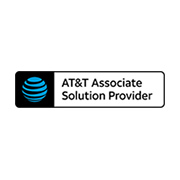Tax season is one of the most active times of the year for cybercriminals – without the right IT security support, your business could be an easy target.

It’s that time of year again – the IRS, state tax agencies, and finance professionals across the nation are once again urging everyone to be on the look-out for scams as they file this year’s taxes.
The number one most popular and effective type of cybercrime scam at this time of year is “phishing”, a method in which fraudulent emails are sent to targets that appear to be from reputable sources in order to access and steal sensitive information such as passwords, account details, credit card numbers, social security numbers, and more. It doesn’t take as much as you may think for a cybercriminal to convince a target that they are a superior in order to persuade employees to give them money, data, or crucial information.
How Can You Spot A Phishing Email?
Effective IT security often comes down to simply knowing what to look for. The most recent trends and patterns in phishing scams include:
- Emails that appear as urgent warnings telling recipients to update their online financial accounts as quickly as possible.
- Emails that tell recipients to click a hyperlink and download important documents or contracts.
- Emails that offer a tax refund once that recipient has verified their identity with private information.
In a nutshell? Cybercriminals will do whatever it takes to seem like they’re an official or familiar source. They will research you and your employees on social media, copy a superior’s email signature, scare the employee into action with a false sense of urgency, and more, just to get the recipient to act without thinking. Once the target has divulged private information, clicked a malicious link, or downloaded malware, the cybercriminal has won. This inevitably leads to extensive damage to the business where the recipient works.
How Can You Keep Your Business Safe?
So what’s the answer? What can the average business professional do to keep themselves and their company safe when criminals are employing such deceitful methods? In addition to equipping your business with the best technology security services, you should also be sure to educate and test your employees on IT security best practices and knowledge. Make sure they understand the following:
- Stay Alert: Remember, nothing is so urgent or so important that it can’t be confirmed first, especially if it involves giving out information or executing a potentially dangerous task.
- Never give out private information: The trusted institutions with which you do business will not ask you for your private information. They already have your account numbers, social security number, and your passwords. They don’t have any good reason to ask for it again, right? If an email from a superior or external contact asks for that info, it is likely a scam, so be sure to confirm the request by phone or in person.
- Equip Your Business: As important as employee awareness is, don’t forget that key IT security solutions like spam filters and firewalls can help keep dangerous emails out of your employees’ inboxes in the first place.
- Implement a Strong Password Policy: It’s simply not safe to trust your employees to use strong passwords. More often than not, users go with something simple and easy to remember, which leaves them more vulnerable to hackers. Ensure that your staff is using passwords that include letters, numbers, symbols, multiple cases, and are at least 8 – 10 characters in length. Furthermore, you need to make sure that passwords are updated on a regular basis.
- Never click on a link before you hover over it with your mouse: If you hover over a link with your mouse, your computer will show you where that link is actually taking you. Many times, criminals will give you what looks like the right link (such as www.YourBank.com) but when you hover over the link with your mouse it actually will show something different (such as
www.YourBank/2340937fvt5.com). If the link is not as advertised, then don’t click.
- Always check up on unexpected email attachments. If you get an email from someone you know with an attachment that you weren’t expecting, give them a call or send them an email to confirm that the attachment is from them and is legitimate before you open it. Be sure to send a new email – don’t reply to the suspicious one!
Think of it this way – cybercriminals keep doing the same old thing because users keep falling for the same cybercrime scams without ever seeming to learn from the experience. Make sure you and your staff do your due diligence to protect your business.
Making network security education routine for your entire team – management included – is the most effective way to stop a phishing attempt. Waiting for another major cyberattack to start making the rounds is not the time to start investing in your staff’s cybersecurity awareness. Allow us to help – we’ve been providing IT security services to businesses like yours for years, and we will do the same for you.






















